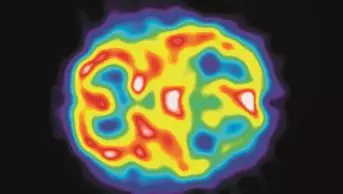
Shutterstock.com
Herbal remedies, such as St John’s wort, green tea and ginseng, may affect the properties of prescription drugs, according to research published in the British Journal of Clinical Pharmacology
[1]
.
Researchers scoured electronic databases, such as PubMed, for randomised or non-randomised clinical studies, case-control and case reports of instances of interactions between herbal medicines and drugs, including antidepressants and medication for HIV, epilepsy and heart disease.
They found 49 case reports and two observational studies. The majority of patients had been diagnosed with either cardiovascular diseases (31%), cancer (22%) or renal transplants (16%), and were receiving mostly warfarin, alkylating agents and cyclosporine, respectively.
Fifteen cases of adverse drug reactions were recorded in total, the most common being elevated liver enzymes, international normalised ratio, gastrointestinal disturbances and kidney damage.
The causal relationships of the adverse drug reactions as a result of herb–drug interactions was assessed using Horn’s drug interaction probability scale or Roussel Uclaf Causality Assessment Method scoring systems. The mechanism of interaction was evaluated using Stockley’s Herbal Medicine Interactions companion.
The researchers came to the conclusion that out of the adverse reactions recorded, herb–drug interactions were either probable or highly probable as the cause in just under 60% of cases. Furthermore, 37% of cases were classified as possible while just 4% of cases were identified to be doubtful.
“Cases of acute rejection episodes have been reported in heart, renal, or liver transplant patients stabilised on immunosuppressives including cyclosporine and tacrolimus due to concomitant intake of St. John’s wort known to induce drug metabolising enzymes,” was an example of herb-drug interaction highlighted in the report.
According to the researchers, co-usage of herbal medicines and prescribed medications is a common practice, especially in patients with hypertension, diabetes, cancer, seizures and depression. However, up until now, patients often refuse to disclose their use of herbal medicines to clinicians and, as a result, clinically relevant herb–drug interaction cases have been underreported.
The authors concluded that, increasing patient and clinician awareness about potential interactions between herbs and prescribed medicines and their consequences, such as adverse events, prolonged hospitalisation and even loss of life, is important in order to prevent herb–drug interactions becoming a serious health problem.
References
[1] Awortwe C, Makiwane M, Reuter H et al. Critical evaluation of causality assessment of herb-drug interactions in patients. Br J Clin Pharmacol 2017. doi: 10.1111/bcp.13490


